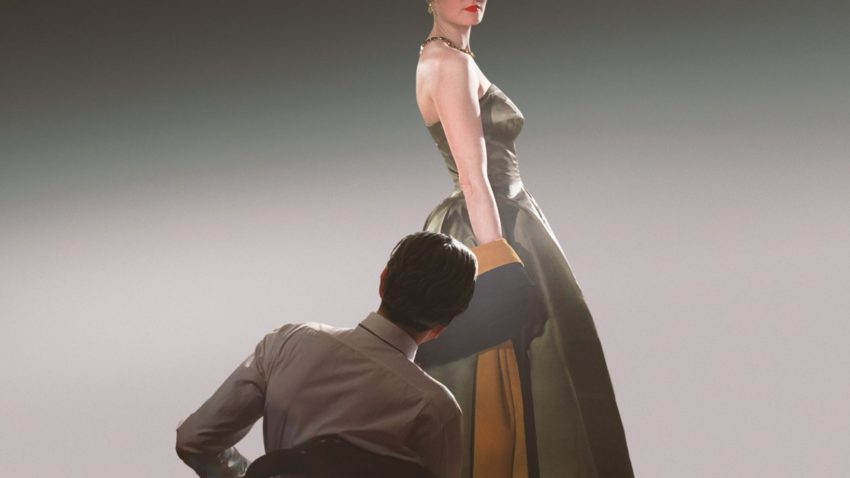
Paul Thomas Anderson, a master of his craft, has released his 2nd collaboration with Daniel-Day Lewis following their previous effort, the perfect film, There Will Be Blood. Phantom Thread is different in subject and tone, but no less masterful. This is a film where, from the 2nd act on I began to steadily realize its excellence and by act 3, had no doubts remaining. Phantom Thread is a textual effort, a psychological masterstroke that escapes its period trappings and is just as much about the relation between an artist’s life and their work as it is a meta-commentary on Day-Lewis’ retirement.
Reynolds Woodcock (Day-Lewis) is a dressmaker in 1950’s London operating a business with his sister, Cyril (Lesley Manville). He has a routine with his relationships, one is welcomed and then one is dismissed. Reynolds appears to have no intention of settling down. Out for breakfast, he meets Alma (Vicky Kreips), whom he takes out to dinner. The film develops a more intricate pattern from there.
The strongest element to Phantom Thread is Anderson himself. There are the fingerprints of a bona fide master, and a surprise to me was that he did the cinematography as well. That’s impressive, because Phantom Thread looks majestic and epic for a film where that might not necessarily be an expectation.
The performances are uniformly excellent. Daniel Day-Lewis delivers a turn that isn’t as showy as some of his other work, but he inhabits his character so completely. Any actor can be flashy, but it takes a master to engage you this subtly. Newcomer Vicky Kreips is the MVP, offering an incisive focused turn that doesn’t seem like much at first, but has you looking up her IMBD by the film’s end. Lesley Manville is also excellent.
Phantom Thread is indisputable. The Master was a perfect movie and Inherent Vice is a very good one. Anderson is reaching a point where great films seem almost routine at this point.
Written by Jeff Turner





